Training Tracks
We offer 5 training tracks: Categorical, Hospitalist, Primary Care, Physician-Scientist, and Preliminary. The biggest decision you’ll make this year is “should I go to the University of Colorado for my medical training?” The second biggest decision is "which track do I choose?"
While the base experience of our residency is the same regardless of track, each track offers a few unique features that augment your experience – unique rotations, small schedule alternations, individualized mentorship, and specialty-focused leaders to name a few. We are one residency and you’ll be on service and working alongside people from all the tracks, all of the time. But your choice of track will add to your experience as a resident here, help to focus your career goals, and offer the tailored learning and experience you'll need to get there.
The oldest and most established of our five training tracks. It is the foundation of the residency of the University of Colorado Residency Program.
NRMP 1076140C0
 We make well-rounded doctors who can practice in the modern academic setting, with excellent clinical ability as well as training in research, scholarship, education, and quality. The categorical track emphasizes outstanding clinical training in diverse
patient care settings including our quaternary, university-based hospital (University of Colorado Hospital); our top-10, safety net county hospital (Denver Health); and our nationally recognized VA medical center (Rocky Mountain Regional VA Medical
Center). Strong faculty physicians help provide a supportive educational structure with graduated responsibility over three years of training, leaving our graduates ready for the rigor of fellowship training or to enter practice in both the inpatient
and outpatient realms.
We make well-rounded doctors who can practice in the modern academic setting, with excellent clinical ability as well as training in research, scholarship, education, and quality. The categorical track emphasizes outstanding clinical training in diverse
patient care settings including our quaternary, university-based hospital (University of Colorado Hospital); our top-10, safety net county hospital (Denver Health); and our nationally recognized VA medical center (Rocky Mountain Regional VA Medical
Center). Strong faculty physicians help provide a supportive educational structure with graduated responsibility over three years of training, leaving our graduates ready for the rigor of fellowship training or to enter practice in both the inpatient
and outpatient realms.
Why should I choose the Categorical Track?
The program features a 4+4 block schedule, alternating 4 weeks of an inpatient-based, traditional admitting rotation with 4 weeks of continuity clinic/ambulatory-based education or elective time. This schedule provides an excellent balance of in-patient and out-patient blocks and allows for weekly dedicated educational time on non-call rotations. During clinic blocks, residents will also have longitudinal protected time for research and scholarly activity, dedicated ambulatory education, longitudinal subspecialty clinic experiences to prepare for subspecialty training, and quality improvement work.
Categorical residents will spend a little over half of their time on core inpatient rotations including general ward rotations at each of our diverse sites of practice, dedicated cardiology inpatient training, 5-6 months of ICU and CCU experience, and other subspecialty inpatient services. In addition to this core clinical experience, all residents will get to work on inpatient subspecialty rotations, consult services, and get training in neurology, geriatrics, emergency medicine, addiction medicine, palliative care, and other medical subspecialties. It is a very well-rounded experience which, in turn, will help you be a well-rounded physician. Each resident also gets two elective blocks per year in each of their three years. Many fellowship-bound residents choose two months of research during their elective time in addition to the protected longitudinal time for scholarship offered to all residents. About 75% of our Categorical residents go on to pursue fellowship training across all the medicine subspecialties.
Residents are able to pursue a myriad of electives in the medicine subspecialties and a variety of other relevant areas in order to personalize their residency training experience. As in the Primary Care and Hospitalist Tracks, every Categorical resident selects one of five career Pathways to further individualize their training: Health Equity and Disparity; Medical Education; Research and Investigation; Medical Leadership; and Global Health. With this flexibility and diversity, residents are well-prepared to enter fellowship training or the physician workforce after completing the categorical program.
Track Leadership

Julia Limes, MD is our Program Director for the Internal Medicine Residency Training Program. Dr. Limes received her medical degree from the University of Colorado after attending TCU for undergrad. She completed her residency and Chief Medical Residency in Internal Medicine at the University of Colorado and has been on faculty with the Division of Hospital Medicine since finishing her training. Her academic interests include residency curriculum design, clinical reasoning, patient care handoffs, transitions of care, and clinical operations. She was an Associate Program Director for the IMRP from 2018-2021 and Senior Associate Program Director since 2021 until taking over as PD in July 2024. In her residency roles she has overseen the IMRP curriculum including the educational half day, served as the site director for the University Hospital, and co-director of the Hospitalist Training Program. Dr. Limes is committed to continuing our strong tradition of training future leaders in every area of medicine and build on the many strengths within our program. Outside of work, she enjoys running, traveling, exploring the Denver food scene, enjoying Colorado summers, cheering on the Denver sports teams (especially the Nuggets!), and being an aunt!
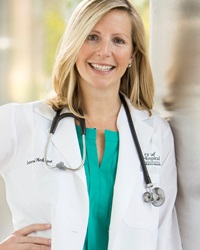
Katie
Suddarth, MD, is
originally from Philadelphia, PA. She went to Dartmouth College then moved to
Denver to attend the University of Colorado School of Medicine. After medical
school, Katie entered the Primary Care Track of the University of Colorado
Internal Medicine Residency Program. She completed her training in 2009,
followed by a chief resident year. She is currently a primary care physician at
the University of Colorado and is the Senior Associate Program Director. She
has three young children and two large dogs who keep her very busy.
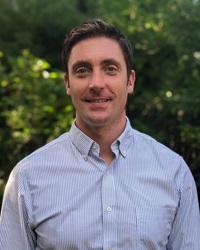
Joe Burke, MD, grew up in Wyoming but has spent equally as much time living in Colorado which he now considers home. He went to Creighton University where he earned a BS in biology and a minor in college basketball. He went on to complete his internal medicine residency at the University of Colorado and served as chief medical resident prior to completing his cardiovascular disease fellowship at CU. He then spent two years as an interventional cardiology fellow at Beaumont Hospital in Detroit where he chose to focus on complex coronary disease and peripheral vascular intervention. He is now a part of the department of medicine and division of cardiology as an interventional cardiologist at Denver Health Medical Center. His clinical interests include advanced interventional and peripheral vascular care for underserved populations. Joe and his wife, Zuzanna, enjoy skiing, hiking, cycling, and exploring the vibrant Denver restaurant scene in their free time.
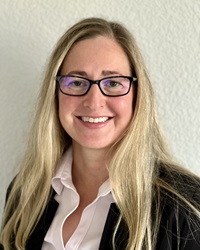
Lisa Davis, MD, MSCS, grew up in a rural town in Arkansas. She completed her undergraduate degree at Brigham Young University and her medical degree from the University of Colorado. She completed her internship, residency and Rheumatology research fellowship at the University of Colorado. She joined the faculty at Denver Health Medical Center in 2011, where she practices Rheumatology. Her areas of research include adverse drug events, outcomes research, and health services research. She joined the residency program as an Associate Program Director in 2016, and works with the research track and categorical residents. She has a son and a daughter and enjoys cooking, cycling, hiking, and most outdoor sports.
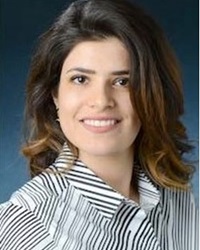
Hoda Farajpour Bakhtiari, MD, grew up in Tehran, Iran where she completed her medical training at Shahid Beheshti Medical University by the hills of Alborz mountain range. She moved to Colorado in 2015 to pursue graduate medical training. Before residency, she worked as a clinical researcher in the Department of Endocrinology at the University of Colorado. She completed her internal medicine residency at the University of Colorado in 2022 and joined the Hospital Medicine group at Denver Health. Hoda lives in Aurora with her husband, two sons, and their dog, Sugar. Outside of work, she enjoys spending time with her family, going to live performances in Denver (ballet, symphony orchestra, musical theater), having friends over for Persian food and treats, and taking care of her expanding orchid collection. Hoda serves as the Assistant Program Director for Diversity, Equity, and Inclusion.
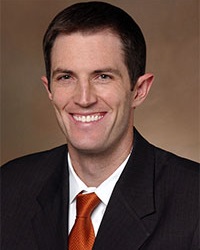
Dan Heppe, MD, was born and raised in Colorado. He attended Medical School and subsequently completed residency and chief residency here at the University of Colorado. He completed his training in 2012 and joined the Hospital Medicine Group at Denver Health Medical Center. After four excellent years at that institution, he recently joined the Hospital Medicine group at the Denver VAMC. His academic interests include resident education, alcohol withdrawal and prevention, and substance abuse. He is the father of two beautiful daughters (pictures available upon request). Outside of medicine, he enjoys skiing, hiking, camping, playing music and spending time with family.
The very first hospitalist training program in the country takes a novel approach to prepare residents for a future as a hospitalist or hospital-based specialist.
NRMP 1076140C1
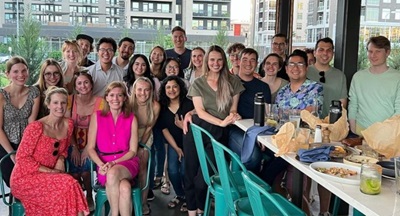 Welcome to the Hospitalist Training Program! Our goal is to train the next generation of leaders in health system improvement, specifically in the inpatient setting, which requires a focused curriculum on health system redesign, exposure to core faculty who engage in this work, and a clinical environment to practice in.
Welcome to the Hospitalist Training Program! Our goal is to train the next generation of leaders in health system improvement, specifically in the inpatient setting, which requires a focused curriculum on health system redesign, exposure to core faculty who engage in this work, and a clinical environment to practice in.
Why should I choose the Hospitalist Track?
A Hospitalist provides hospital-based care for patients admitted to general medicine, or hospital-based subspecialty service, including critical care, oncology, or palliative care. A career in Hospital Medicine includes a focus on health system improvement and innovative care redesign, in the form of quality improvement, patient safety initiatives, medical education, or the development of transformative care delivery models.
Our three-year Hospitalist Training Program (HTP) provides a comprehensive and innovative preparation for residents seeking careers as hospitalists or hospital-based specialists, with a focus on the clinical skills required for hospitalist practice (procedural, ultrasound, consultation, oncology, palliative care); developing the knowledge and skills needed to embark upon systems improvement, providing intensive mentorship, and building a supportive (and fun!) community.
Track Leadership

Emily Gottenborg, MD is an Associate Professor within the Division of Hospital Medicine, and has a passion in teaching the next generation of leaders in hospital medicine and healthcare system improvement. She is the Director of the Hospitalist Training Program, and is faculty within the Institute of Healthcare Quality, Safety, and Efficiency, where she also coaches and trains frontline clinical teams to improve their local clinical environment. Dr. Gottenborg came to Colorado in 2014 after training at Boston University for medical school and University of California, San Francisco for residency, and enjoys the mountain lifestyle with her husband, 3 kids, 2 dogs, and a gecko!

Neelam Mistry, MD is a graduate of the Hospitalist Training Program and is the Service Line Director for the Hospitalist Training Track Clinical rotation. Dr. Mistry’s clinical interests are in improving access to healthcare to traditionally underserved populations. Dr. Mistry serves as one of the Assistant Program Directors for the Hospital Training Program track.
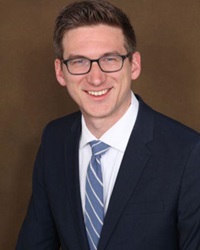
Sam Porter, MD is a graduate of the Hospitalist Training Program and leads the Quality Improvement Education within the HTP. With diverse interests ranging from leadership training to design thinking, his mission is to improve the health care experience for practitioners and patients and to train the next generation of leaders in medicine to be compassionate and revolutionary practitioners of health systems transformation. Dr. Porter serves as one of the Assistant Program Directors for the Hospital Training Program track.
One of the preeminent training programs for residents wishing to focus on the total care of the patient with a diversity of experiences and unique training environments.
NRMP 1076140M0

Welcome to the Primary Care Track of the University of Colorado at Denver Health! The Primary Care Track is one of the pre-eminent training
programs for resident physicians committed to the care of vulnerable patients
while developing skills as leaders, advocates, innovators, and/or researchers.
Why should I choose the Primary Care Track?
Established in 1977, our program was one of the first primary care
tracks in the country and we currently accept 9 residents per year. Our
program is continually evolving to meet the needs of our graduates and
patients. We pride ourselves on the diversity of experiences and training sites
we offer, the excellence of our housestaff and faculty, and the flexibility we
can offer to tailor each resident’s training to their individual needs.
In July 2020, Denver Health became
the official clinical home base for the Primary Care program. Similar to
residents in other tracks, Primary Care residents also rotate at the Rocky Mountain Regional VA Medical Center and UCHealth University of Colorado Hospital.
All primary care trainees have
their continuity clinics within the Denver Health system. This includes an
expanded array of ambulatory electives and offerings in Colorado’s premier
safety-net institution. Our goal is to train top-notch residents to go into
careers in clinical practice, academic general internal medicine, health
services, and fellowships in primary care sub-specialties such as Geriatrics,
GIM/Public Health, and Palliative Care.
Want to learn more? Visit the CU Anschutz General Internal Medicine Primary Care Residency Program webpage for more detailed information about the track curriculum, clinic sites, current residents and faculty, research and mentorship, and much more!
Track Leadership

Yasmin Sacro, MD, is a proud second-generation Filipina raised in San Diego, California who completed her BA in Biological Sciences and Economics at the University of Chicago, then graduated from the University of Chicago Pritzker School of Medicine. She completed her residency and chief year in internal medicine at Scripps Mercy Hospital in San Diego. She then served as a Core Faculty member at the University of Chicago and is also a National Health Service Corps Member. She joined the Division of General Internal Medicine at the University of Colorado in 2015 and provides primary care at Denver Health Eastside Clinic. Her primary academic interests include care of underserved populations, diversity, and medical education. Outside of medicine, Dr. Sacro spends her time reading, trying the newest exercise boutique, enjoying cultural arts, and chasing her 3 children. Dr. Sacro is the Program Director of the Primary Care Residency Track of the University of Colorado at Denver Health.
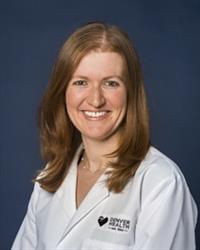
Christine Haynes, MD, MPH, was born in New York and studied international affairs and global health at Georgetown University. She received her MD and MPH from Northwestern University and then completed her residency and chief year in Internal Medicine/Primary Care at UCLA. Christine is a primary care physician at Denver Health at the Westside Clinic. Her interests include women’s health, underserved populations, population health, and quality improvement, and advance care planning. Christine enjoys running, biking, traveling, live music, and exploring new places. However, she spends most of her time reading children’s books in funny voices and dancing in the kitchen with her two young children. Christine is the Assistant Program Director for the Primary Care Residency Track.
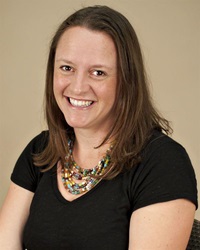
Michelle Cleeves, MD is originally from Boulder, CO and graduated from the University of Colorado School of Medicine. She did her residency at Montefiore Medical Center in the Bronx, NY in the Social Internal Medicine program. After finishing residency in 2012, she returned to Colorado and joined the Division of General Internal Medicine at Denver Health. Michelle has strong interests in underserved populations and Women’s Health. and. She joined the Primary Care leadership team as the Women's Health, Behavioral Health, and Primary Care Journal Club lead. Michelle enjoys camping, hiking, rafting, and cooking.
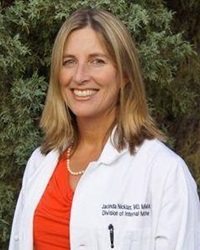
Jacinda Mawson Nicklas, MD, MPH, MA, grew up in Woodside, California. She completed her BA in Human Biology and her MA in Anthropology at Stanford University. She received her MD from Harvard Medical School and completed her residency in Internal Medicine and Primary Care at Brigham and Women's Hospital in Boston, Massachusetts. She received her MPH from the Harvard School of Public Health and completed her clinical research fellowship in Integrative Medicine and General Medicine at Harvard Medical School. Her research focuses on women’s health, obesity, lifestyle change, and disease prevention. Her current research uses websites and mobile apps to help postpartum women who are at elevated risk for diabetes and heart disease. Outside of medicine she enjoys spending time with her husband and three children as well as running, skiing, hiking, swimming, and cycling. Dr. Nicklas is the Director of Primary Care Research and oversees PC resident research projects.
Clinic Directors
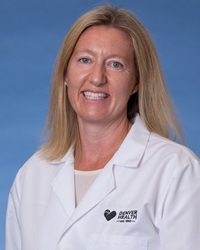
Kathryn Berman, MD is the Continuity Clinic Director at Westside Clinic at Denver Health. She is from Massachusetts, attended Brown University for undergrad and then lived in California for 4 years teaching middle school where she developed her skills as an educator, but in hindsight realized she much prefers teaching medical students and residents as opposed to teenagers. She completed medical school at Tufts University Medical School and then moved to Denver to enter the Primary Care Track at the University of Colorado Internal Medicine Residency Program. She joined Denver Health in 2009, and loves being a primary care physician at Westside Clinic. She enjoys exploring Colorado with her 2 children, on skis, trails and in their camper. She also appreciates walking around the city to find new restaurants and search for the best coffee and ice cream.

Sai Anandi Ramaswami, MD, MBA, was born and raised in Denver, Colorado. She has not yet found a reason to leave, completing her undergraduate education and MBA at the University of Denver, medical school at the University of Colorado, and residency in the University of Colorado Internal Medicine Residency’s Primary Care Track. After graduating in 2017, Anandi started her primary care career at Denver Health’s Westside Clinic, and then moved to Denver Health’s Sloan’s Lake Clinic upon its opening in September 2020. In addition to being passionate about care of the underserved, her clinical interests include reproductive health, medical education, and diversity, equity and inclusion. Outside of medicine, Anandi enjoys spending time with family and friends, playing with her dog, Boba, exploring the Denver food scene, and listening/dancing to her favorite music. Anandi is the Continuity Clinic Director at Sloan’s Lake, Denver Health.
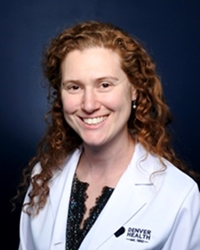
Jennifer Stichman, MD, is originally from the west coast and moved to Colorado for the blue skies. In Colorado, she completed her residency and rheumatology fellowship at the University of Colorado. She has been a clinician at Denver Health since finishing training in 2013 and now spends half her clinical time as a primary care physician at the Webb Clinic and half as a rheumatologist. She serves as the Continuity Clinic Director at Webb Clinic, Denver Health, and also directs the Rheumatology Electives for residents. She is particularly interested in medical education, especially topics at the intersection of primary care and specialty medicine. She appreciates that her spouse keeps the family well fed with his excellent cooking, as we would all otherwise be eating chili mac seven nights a week. Her favorite activity is anything that allows her to explore the world with the wonder of her 5-year-old.
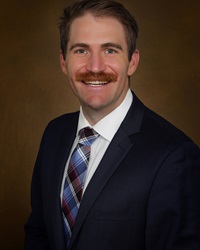
Ben Trefilek, MD graduated from the University of Colorado Internal Medicine Residency Primary Care Track in 2020 and has been practicing full-time primary care at Denver Health ever since. Originally from Illinois, he attended Butler University (Go Dawgs!) and then Indiana University School of Medicine. Dr. Trefilek now serves as the Continuity Clinic Director at Eastside Clinic of Denver Health, a role he started in 2023. In addition to resident education, Dr. Trefilek is passionate about mindfulness and LGBTQ+ care. Outside of work, you can find him watching baseball, skiing, and camping.
A Physician-Scientist training pathway with specialized curriculum geared towards physician-scientists where graduates “short-track” to fellowship in two years.
NRMP 1076140C2
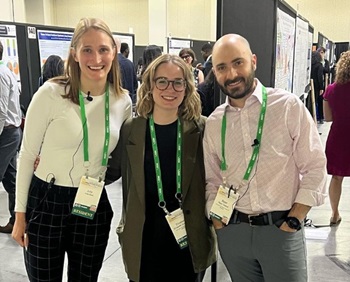 Welcome to the University of Colorado Physician Scientist Training Program (PSTP)! The overall goal of the PSTP is to train academic leaders in medicine. We aim to accomplish this by attracting the most promising physician-scientists to our program and providing them with outstanding clinical training while preparing them for a career in academic medicine. While our program is broad, we are especially enthusiastic about attracting trainees pursuing careers in translational research (bench to bedside and bedside to bench). PSTP scholars are included in a community of physician-scientists (MSTP students, StARR scholars, and early physician-scientist faculty) who meet regularly to share related perspectives and experiences. PSTP scholars are provided a substantial support package from the Department of Medicine when making the transition from fellowship to faculty.
Welcome to the University of Colorado Physician Scientist Training Program (PSTP)! The overall goal of the PSTP is to train academic leaders in medicine. We aim to accomplish this by attracting the most promising physician-scientists to our program and providing them with outstanding clinical training while preparing them for a career in academic medicine. While our program is broad, we are especially enthusiastic about attracting trainees pursuing careers in translational research (bench to bedside and bedside to bench). PSTP scholars are included in a community of physician-scientists (MSTP students, StARR scholars, and early physician-scientist faculty) who meet regularly to share related perspectives and experiences. PSTP scholars are provided a substantial support package from the Department of Medicine when making the transition from fellowship to faculty.
Why should I choose the PSTP Track?
The University of Colorado Internal Medicine Residency Program has a long history of developing outstanding physician-scientists who become academic leaders. The Department remains committed to developing and nurturing the careers of future academicians in all areas of biomedical investigation, and the PSTP is focused on recruiting, supporting, and retaining the next generation of translational investigators at CU. The Anschutz Medical Campus, coupled with superb clinical facilities, the Colorado Clinical and Translational Sciences Institute (CCTSI), and the Comprehensive Colorado Cancer Center, provide an outstanding, state-of-the-art environment for trainees to obtain clinical and research training.
The PSTP has been established to formalize this academic training pathway, while providing flexible and individualized training plans, in order to optimize the career success of each trainee. The PSTP is part of a pipeline of training for physician-scientists that includes the MSTP, the StARR Program, and T32-supported fellowship training programs. To this end, the PSTP provides linked admission to the categorical IM Residency Program and to the Subspecialty Fellowship Program of the trainee’s choice contingent upon excellent performance during residency training. The PSTP focuses on providing superb clinical training incorporating the “short-track” ABIM Research Pathway option, provides academic career mentoring and advising throughout the combined residency/fellowship training period and into independence, and active engagement in a vibrant community of physician-scientists. We seek candidates who have excellent clinical judgment and skills, are superbly accomplished scientists, and are committed to a career in academic medicine. The PSTP is directed by David Schwartz, MD, Distinguished Professor of Medicine and Immunology, Director of the Program to Advance Physician-Scientists and Programmatic Research, and former Chair of Medicine (2011-2021).
Key elements of the PSTP include:
- Linked match to the Categorical Internal Medicine Residency Training Program and the Subspecialty Fellowship Program of interest.
- A training supplement for one meeting each year is provided to each PSTP trainee during the residency period.
- Complete (3-yr) or “short-track” ABIM (2-yr) residency training options are tailored to the abilities and needs of each candidate.
- Flexible clinical schedules and opportunities for research rotations with subspecialty mentors are provided.
- Trainees will be able to choose research fellowship mentors from a broad pool, including subspecialty faculty, and approved basic science and public health faculty, at Anschutz Medical Campus (AMC), Veterans Administration Medical Center (VAMC), Denver Health Medical Center (DHMC), and National Jewish Health Center (NJH).
- Regular community building sessions among a broad array of physician-scientists (MSTP, PSTP, StARR scholars, and early physician-scientist faculty) addressing key elements of academic success: how to choose a mentor, develop a research question, establish a vision for career development, present at a national meeting, and what are the key grant writing issues in the various NIH funding mechanisms.
- PSTP scholars will be an essential part of a community of highly driven, ambitious, creative and physician-scientists who interact, collaborate, and continue to help each other as they progress through their careers.
- Continuous mentorship and advising on optimizing academic career development, from residency to fellowship to independence, is a key feature of the Program.
- All successful PSTP scholars are provided a substantial career development start-up package from the Department of Medicine when transitioning from fellowship to faculty.
We encourage applicants to have evidence of strong clinical judgment, a substantive and productive research background, often with a prior Ph.D, and posses a clear and unwavering commitment to and potential for academic research careers in a subspecialty area. If interested in learning more about research at Colorado, CCTSI Colorado Profiles is a comprehensive tool used to identify past and present research efforts by Colorado researchers. You can review this to learn more about possible collaboration, mentorship, networking, or other career opportunities.
Track Leadership
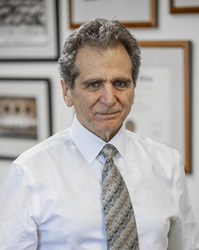
David Schwartz, MD, is the former Robert Schrier Chair of Medicine and Director of the Physician Scientist Training Program at the University of Colorado. He has made numerous contributions toward understanding the role that biological and genetic determinants play in the onset of diseases that are influenced by the environment. These efforts have provided new insights into the genetics, epigenetics, and genomics of interstitial lung disease, asthma, and innate immunity. His work has led to the recognition that genetic susceptibility, and specifically MUC5B, plays a role in the etiology of pulmonary fibrosis. Dr. Schwartz’s lab was the first to clone the human TLR4 gene and demonstrate that variation in this gene decreased immune responsiveness to endotoxin, enhanced the risk of Gram negative sepsis, and protected individuals from the development of coronary artery disease. In addition, the Schwartz lab demonstrated the importance of locus-specific DNA methylation in the development of allergic airway disease by directing the maturation of T lymphocytes toward a Th2 phenotype. He is a member of the American Society for Clinical Investigation, the Association of American Physicians, and the American Clinical and Climatological Association, and a recipient of the American Thoracic Society Scientific Accomplishment Award and the Amberson Lectureship Award and the Bonfils-Stanton Science and Medicine Award.
A one-year preliminary position for interns who go on to specialize in fields such as Anesthesia, Dermatology, Neurology, Ophthalmology, PM&R, Radiology, and others. Preliminary interns are fully integrated into the same rotations as the categorical, hospitalist, and primary care interns.
NRMP 1076140P0
 Welcome to the Preliminary Year track! The University of Colorado offers an excellent
one-year program for medical school graduates who will be pursuing other
subspecialties that require a year of Internal Medicine training.
Welcome to the Preliminary Year track! The University of Colorado offers an excellent
one-year program for medical school graduates who will be pursuing other
subspecialties that require a year of Internal Medicine training.
Why should I choose the Preliminary Track?
The Preliminary program is friendly and designed to prepare you for the subspecialty years ahead of you. Preliminary interns have the same high quality and high autonomy patient care experiences as Categorical interns. Preliminary interns experience a variety of inpatient and outpatient rotations at all three of our clinical sites. They also work in ambulatory clinics at the VA, do a rotation in the University Emergency Department, and have a wide range of elective opportunities. In total, there are 7 months of dedicated inpatient time which alternate with 5 months of electives and preparatory experiences. The main differences between Preliminary and Categorical interns include activities during the +4 clinic month since Preliminary interns do not have an Internal Medicine continuity clinic to attend. During that time, the Preliminary interns will spend time with their parent program and take electives that suit their future needs.
Track Leadership

Julia Limes, MD is our Program Director for the Internal Medicine Residency Training Program. Dr. Limes received her medical degree from the University of Colorado after attending TCU for undergrad. She completed her residency and Chief Medical Residency in Internal Medicine at the University of Colorado and has been on faculty with the Division of Hospital Medicine since finishing her training. Her academic interests include residency curriculum design, clinical reasoning, patient care handoffs, transitions of care, and clinical operations. She was an Associate Program Director for the IMRP from 2018-2021 and Senior Associate Program Director since 2021 until taking over as Interim PD in April 2024. In her residency roles she has overseen the IMRP curriculum including the educational half day, served as the site director for the University Hospital, and co-director of the Hospitalist Training Program. Dr. Limes is committed to continuing our strong tradition of training future leaders in every area of medicine and build on the many strengths within our program. Outside of work, she enjoys running, traveling, exploring the Denver food scene, enjoying Colorado summers, cheering on the Denver sports teams (especially the Nuggets!), and being an aunt!